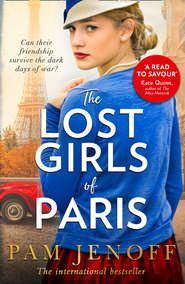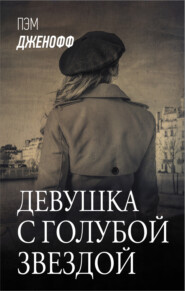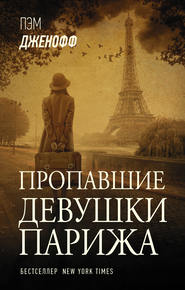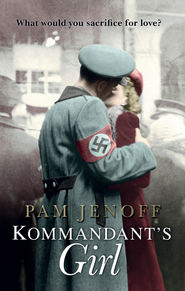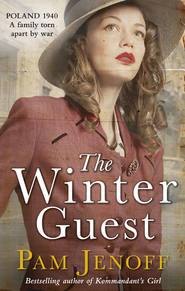По всем вопросам обращайтесь на: info@litportal.ru
(©) 2003-2024.
✖
The Last Embrace
Настройки чтения
Размер шрифта
Высота строк
Поля
Mrs. Lowenstein smiled reassuringly at me as I took my seat. “With respect to shipbuilding...” she continued, resuming her lecture.
I jumped when the bell rang ten minutes later, but this time it was just signaling that class was over. “Have a nice weekend,” Mrs. Lowenstein called over the din of chatter and desks slamming. I gathered my books and walked down the hall, which was covered in student-made Halloween decorations and smelled from a mixture of Clorox disinfectant and leftover lunches. I put my books in my locker and grabbed my coat and lunch bag, then closed the door again and leaned against it. The sharp knob cut into my back as I pressed against the wall to escape the surge of students, laughing and talking as they jostled roughly past between classes. I drew my cardigan more tightly around myself like armor. I still could not get used to the size and chaos of Southern High.
I looked longingly in the direction of the tunnel. Southern was in fact two schools, one for the boys and one for girls, and our homeroom, cafeteria and gym were separate. But they were connected by an enclosed walkway so kids could take classes together on either side.
When there was a gap in the crowd, I started for the cafeteria. I eyed the swarming lunchroom warily from the doorway. The girls seemed to camp in clusters, Italians in the far right corner, Irish on the far side of the room, as if trying to recreate the divisions of the local neighborhoods. A few of the girls from Porter and Ritner Streets sat at the first long table in a tight circle. Aunt Bess tried to help me fit in, buying me the popular plaid wool skirts and sturdy saddle shoes, so unlike the loose, flowing dresses and sandals I’d worn most of the year back home. “Maybe you could invite a friend over after school,” she’d suggested more than once—as if it were that simple. My olive skin was still darker than the others, my accent undeniable. The girls from the Jewish neighborhood, who had grown up together, had no room for a foreigner.
I carried my lunch box toward a nearly empty table on the far edge of the room. At the end a little girl with skin even darker than mine sat by herself, staring straight ahead, chewing purposefully. “Coloreds,” Liam called the small group of black kids at Southern. They, too, kept to their own group—except for this girl, who was alone like me.
“Mind if I sit?” The girl shrugged. “I’m Addie.”
“I’m Rhonda. You talk funny.” The girl’s tone was matter-of-fact. “Where you come from?”
“Italy. I moved here a few months ago, but we were at the shore for the summer.”
A harsh laugh came from two tables over. A few of the Irish girls were looking at Rhonda and me, making jokes.
Rhonda finished her lunch and stood, casting the remnants of her lunch in a trash can. “See you.” I watched her go, wondering what Aunt Bess’s reaction would be if Rhonda was the friend I invited over. Not wanting to remain at the table alone, I took the rest of my sandwich and folded it back in the wax paper. I still could not get used to the amount of waste—or take for granted that there would be food tomorrow.
My science class was in the boys’ school so I started down the tunnel. Unsupervised, the long, dim corridor was the one place boys and girls could meet and I averted my eyes from the couples that loitered close to one another against the walls, necking. I didn’t know much about sex, other than what I’d gleaned from a few books and whispers in the girls’ bathroom. But I sure saw some things here.
I glimpsed Liam at the far end of the tunnel. Seeing just one Connally boy was always strange, like a game piece that had been separated from the rest of the chessboard. My eyes caught his and I started toward him, hoping we might talk before class; I didn’t even mind if he teased me. But Liam had become more aloof since returning from the beach, not just from me but from his brothers. I saw him hanging on the shadowy outskirts at the edge of the playground with kids who smoked and more often than not had only one parent at home—a place he didn’t belong.
As I neared the boys’ school, Charlie appeared from behind the open door of a locker. Happiness flooded me as it always did when I saw him. But it quickly disappeared. Looking up at him adoringly from beneath his arm was Stephanie Weidman, a blonde senior who led the cheerleading squad. Her hair was neatly rolled and pinned back and the cuffs of a crisp white blouse peeked out beneath her pink cashmere sweater.
I should not have been surprised. It had not taken me long to figure out that Charlie was very popular with the girls. “Why are you giggling?” I’d demanded of the girl at the locker next to mine the very first day when he’d passed by. I would not have anyone make fun of him.
“He’s Charlie Connally,” the girl explained, her voice hollow with awe. “The quarterback.”
At the shore he had just been Charlie. Here, though, he was larger than life, the “bee’s knees,” one of the girls called him. Crowds seemed to part as he passed and girls looked at him in a way that I had not understood before. Even those who didn’t like football and didn’t understand the game, including myself, sat in the stands, shivering, with their hands around a paper cup of metallic-tasting cocoa just to see Charlie in all his glory.
I started to duck away now but Charlie’s head swiveled in my direction and he started over, leaving Stephanie standing alone. There was a hushed silence in the tunnel around us, then whispers and stares as the school’s star quarterback walked over to talk to the small, foreign girl who nobody knew. “Hi, Addie.” Charlie smiled brightly, as though we were at the beach and it was just the two of us. He wore his varsity letter sweater, black with the red S. He’d grown taller since summer and wore his hair in a neat comb-back with pomade, not loose and curly as it had been at the beach.
Behind him I noticed Liam watching our exchange, eyes longing. He always seemed so separate from the rest of us, in a way he just didn’t have to be. Join us, I pleaded silently. If I went to him, he just might. But my feet remained planted, not wanting to give up this one moment with Charlie.
Charlie turned to Stephanie, who had come up behind him. “Do you know Addie?” Of course not. Girls like her would never even see me—nor would Charlie if it hadn’t been for the shore. “Addie’s like family,” he said. The words, intended with kindness, stung. Not family—like family. There was always that one step separating me from them. Stephanie sniffed, unimpressed, and turned and walked down the hall. Charlie looked after her, as if he wanted to follow.
But he did not.
Warmth surged through me. I loved him. Loved. I had realized it late one afternoon near summer’s end as I watched the boys play in the lot between beach houses, sunlight streaming down. I knew he did not feel the same, but the very idea seemed to change things. It wasn’t just his image—he was smart and sure and he had a way of making everything safe and all right when he was in the room. I had begun to dream about him, too. The previous night I dreamed that he had pulled me from the water, rescuing me as he had last summer. In my fantasy, though, he did not set me down, but held me, bringing his lips to mine. I’d woken up breathless, my skin damp.
I had other dreams too, not the kind that came unbidden at night but the film that ran all day in my head: What if Charlie really saw me? We could go steady, be a couple. I imagined myself on his arm. No, it wasn’t that he didn’t quite think of me as family that I minded. I wanted him to think of me as something more.
He looked over his shoulder, then lowered his voice. “I saw you with that colored girl before in the cafeteria.” I was flooded with confusion. I always looked for Charlie, but I hadn’t known he’d noticed me as well.
“Rhonda?” He shrugged, as though her name was unimportant. “What about it?”
“It’s just that colored and whites, they keep to themselves here.”
“Why?” I demanded. He blinked. Charlie was not used to being challenged.
“I don’t know,” he said, revealing a crevice of doubt that he could not show as the oldest always trying to protect the others.
“You play football with some of the colored boys, don’t you?”
“That’s different.” He glanced uneasily over his shoulder. “Maybe we should discuss it at home.”
“Whose home?” I liked Charlie, and the last thing I wanted to do was fight. But I couldn’t let it go. “Because if what you are saying is true, then perhaps the Jews and the Irish, they should keep to themselves too.”
I was right and he knew it. But he clenched his jaw, as though admitting he was wrong would somehow be a weakness or flaw. Charlie saw the world in terms of black and white. “It isn’t that simple.”
We stood facing one another squarely. He was clearly surprised that I’d stood up to him in a way that few people had. But he would not back down either. There was a light in his eyes, a respect that I hadn’t before seen.
“Anyway...” Charlie cleared his throat, retreating. His eyes softened, holding mine. “I’m glad to see you.” My stomach flipped. Had he somehow guessed the truth about how I felt?
From across the hallway, I heard a snicker, unmistakably aimed in my direction. My face flushed. The fact that I did not fit in here, it was always bubbling beneath the surface with my accent, my slightly darker skin. Kids simply could not imagine why the Connally boys, especially Charlie, wanted to be friends with me. Charlie did not seem to hear it or notice—things like that were below his line of sight. My anger grew. “They’re laughing at us.” This, coupled with the girls laughing at Rhonda and me in the cafeteria, was too much to take. I started down the hall.
“Addie,” Charlie cautioned, wanting me to just leave it alone for the sake of peace. But I had never been able to look away from unfairness.
My mind reeled back to one of the first mornings on the ship when I had awoken to find the chain which perpetually hung around my neck, holding the mizpah, gone. Across the narrow galley, I saw an older girl palming it casually.
“Give it back,” I’d demanded. When the girl ignored me, I lunged for it. I was on the ground then, pinned under the larger girl, nails gouging like fire at my cheeks. With all my might, I lifted my knee and pushed the girl off of me, grabbing the necklace that had skittered across the deck. I put it back on, defying the other girl to try to take it again.
I hadn’t been able to leave it alone then, and I couldn’t now. I approached the boy who had laughed at us. “Something funny?”
His eyes widened, unaccustomed to being called out for his bullying. “Why don’t you go back where you came from?”
As I opened my mouth to answer, the bell rang. “Come on,” another boy said, urging him outside. I started toward class. But as I neared the end of the tunnel there was a clamoring outside, and I saw Liam crossing the playground with swift, long strides toward the boy whom I’d confronted minutes earlier. I opened the door in time to hear the other kid say, “...Jew lover?” Liam drew back his arm. I heard a sickening crunch, flesh splitting, as Liam’s fist connected with the boy’s face. “Liam!” I cried, running toward him. He had a quick temper, an Irish temper, his mother had called it. He was forever getting into arguments. This was the first actual fight I had seen him in, though. The last thing he needed was further trouble.
But Liam was on top of the boy who lay on the ground now, both hands around the boy’s neck. “Apologize,” he commanded. The boy gurgled helplessly, blood trickling from his nose.
“Liam, he can’t apologize if he can’t breathe.” I tugged at his shoulder. “Let him up.”
Teachers and lunch aides surged forward, pulling Liam and the other boy apart. Charlie rushed up beside us. “What were you thinking?” he admonished.
The principal, Mr. Owens, crossed the schoolyard. “I should expel you!”
Charlie stepped forward quickly. “Respectfully, Mr. Owens, that isn’t necessary. I will take him home right now myself.”
The principal paused, then acquiesced. “Fine.” Charlie was a student leader, someone he trusted. He wagged a finger in Liam’s direction. “But next time, you’re outta here.”
“Dad’s going to wallop you.” Charlie scowled once the principal and other teachers were out of earshot. My heart ached that Liam would be punished simply for sticking up for me—again. I wanted to run after him and explain to his parents. “And now I’m going to be late for class.” Liam’s face fell. He could handle expulsion or whatever punishment his folks might hand out. It was Charlie’s disapproval that was too much to bear.
“But he was only trying to stick up for me,” I began.
“I don’t need your help,” Liam cut me off tersely. He did not care about punishment, or what the other kids thought of him—except for Charlie.
“Come on.” Charlie started to lead Liam from the schoolyard, then turned back. “Addie?”






